Changing life from raising goats
From abandoned fields and hills, fragmented and spontaneous livestock farming, after a long period of research and bold conversion to goat farming, currently goat farming in Yen The district has been formed and developed in the direction of commodities, bringing high economic efficiency to many people.
With 11 years of experience raising goats, Mr. Nguyen Van Bay, Dong Gian village, Xuan Luong commune said: Raising goats has brought high economic efficiency to the family. In 2011, during a visit to a friend's family in Cao Bang , I accidentally came across a goat fattening model. I boldly borrowed money and bought nearly 10 goats to raise, initially learning about the habits of goats, then drawing on my own experience, gradually I became attached to the profession without realizing it.
It is known that in the early years of his career, goats were mainly raised on hills. Later, Mr. Bay realized that managing the goat herd was very difficult, and the goats were often infected with internal and external parasites. Instead of the previous hill-raising method, Mr. Bay has now completely switched to raising them in two-story stables that are sturdy, high, warm in winter and cool in summer.
Mr. Bay confided: While working, I also learned and learned about goat fattening experiences from those who went before, on information pages, on newspapers, radio... so the next batches of goats are less sick, grow quickly and bring a significant income to the family. Currently, I raise 3 batches of goats each year, each batch has 500 - 600 goats, after 3 months each goat weighs 30 - 35kg, the price of goat meat is 120 thousand VND/kg. After deducting expenses, the family earns a profit of more than 200 million VND/batch.
Similar to Mr. Bay, Mr. Nguyen Van Tu, a typical household raising commercial goats in Dong Gia village, said that fattening commercial goats is one of the directions that brings high income to people in Xuan Luong commune. From a small scale of raising a few dozen goats, up to now, the commune has more than 15 households raising goats on a concentrated scale, typically in the villages: Nghe, Dong Gian, Dong Gia and Lang Duoi. Mr. Tu added: In the future, we will establish a goat raising cooperative to facilitate the consumption of products as well as import breeds of origin, ensuring quality, attracting and creating conditions for many households to participate.
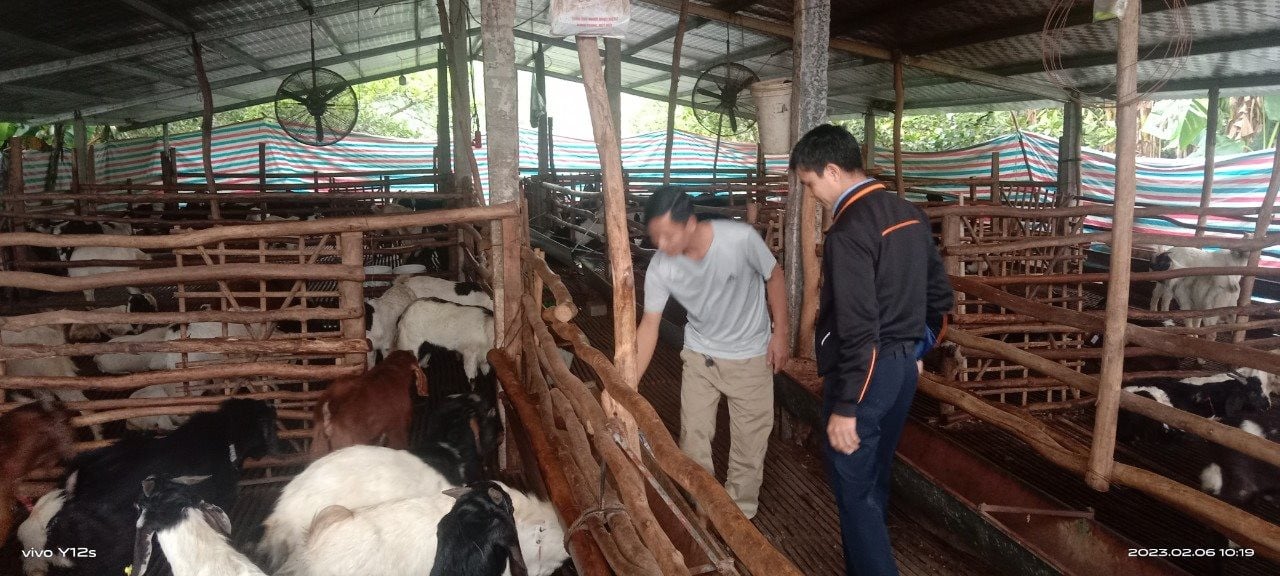
Unlike Mr. Bay and Mr. Tu, Mr. Nong Tran Hien, in Hong Ky commune, joined the Hong Ky Goat and Honey Bee Production and Consumption Cooperative. After joining the Cooperative, he and other members joined together in raising livestock, finding product outlets, bringing in a highly effective and stable source of income. The total annual income of the family is estimated at over 200 million VND. In addition, many other households have a stable source of income, gradually improving their lives. Many households have become well-off households thanks to raising commercial goats.
Creating goat breeds that adapt to the climate
Currently, the two main types of goats raised in Yen The are Bach Thao crossbred goats and Boer crossbred goats (Boer crossbred goats, including two lines: dwarf Boer goats imported from Thailand and tall Boer goats imported from Myanmar). These are two types of commercial goats crossbred by the father being Bach Thao and Boer with the mother being a local goat. These goat breeds are suitable for the local farming and climate conditions, have few diseases, grow and develop well, these are also the assessments of the professional agencies of the Department of Agriculture and Rural Development of Bac Giang province.
According to Mr. Bay, the Boer goat breed has the outstanding advantage of growing very quickly, producing more meat than regular goat breeds. In particular, Boer goats are docile and resilient animals, capable of growing in different climatic conditions, have good disease resistance, and are omnivorous, so the economic risk is low, helping farmers feel secure. However, goat farmers still ensure that they vaccinate their goats with 4 types of vaccines: smallpox, anthrax, foot-and-mouth disease, and necrotizing enteritis. Vaccination with all types of vaccines helps increase the survival rate until sale, significantly increasing economic efficiency in livestock farming.
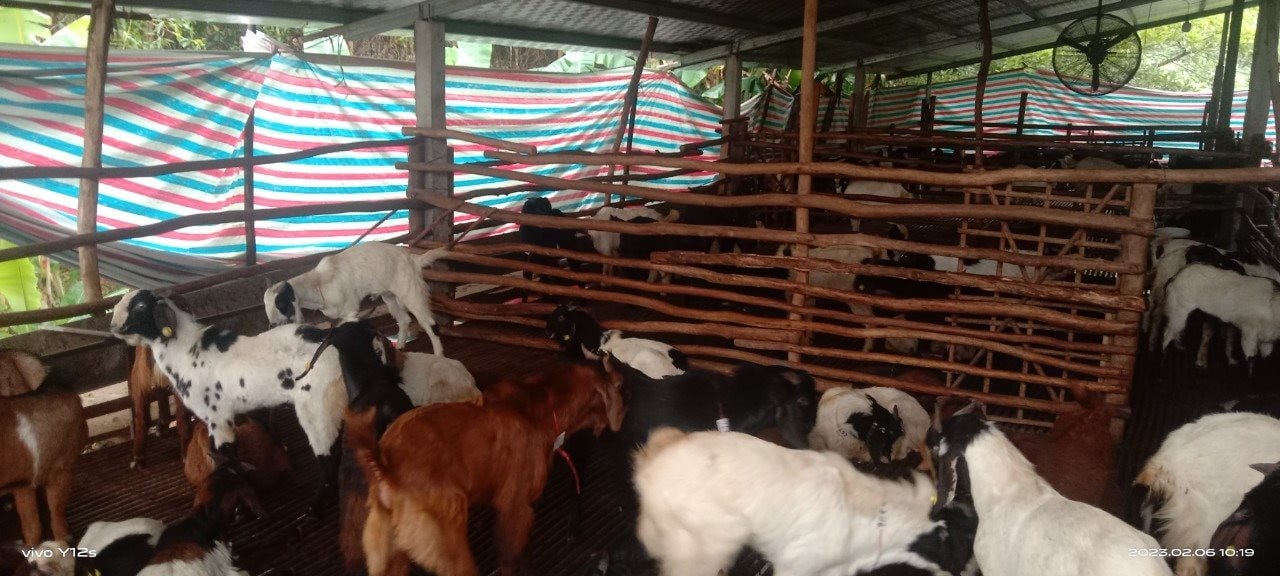
Mr. Duong Van Vy, Head of the Animal Husbandry and Veterinary Department of Yen The district, said that in order to encourage goat-raising households in the district, the district People's Committee issued a project to develop a commercial goat herd associated with building a Yen The goat certification brand. Thanks to that, the goat herd in the area has increased rapidly, currently reaching about 10,000 heads concentrated in the communes of Hong Ky, Xuan Luong, Canh Nau, Tan Soi... In Hong Ky commune, the government has supported and encouraged the establishment of new goat-raising cooperatives. Many communes have also established cooperative groups to share experiences and strengthen production and product consumption links.
Source











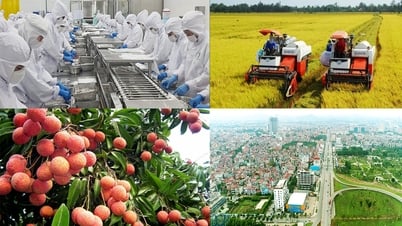











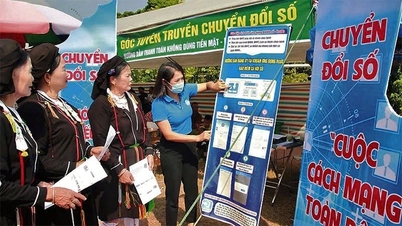

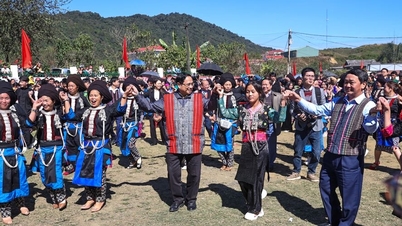























































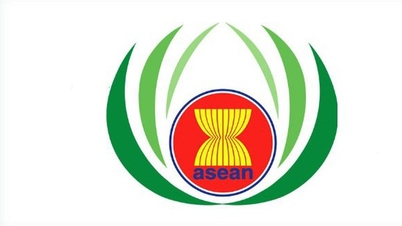
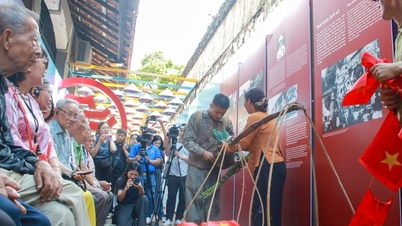
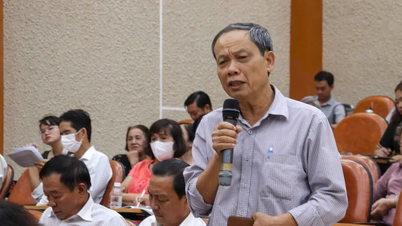






















Comment (0)